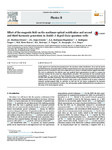
Please use this identifier to cite or link to this item:
http://ricaxcan.uaz.edu.mx/jspui/handle/20.500.11845/613Full metadata record
| DC Field | Value | Language |
|---|---|---|
| dc.contributor | 39945 | es_ES |
| dc.contributor.other | https://orcid.org/0000-0003-0087-8991 | - |
| dc.contributor.other | https://orcid.org/0000-0002-6232-9958 | - |
| dc.coverage.spatial | Global | es_ES |
| dc.creator | Martínez Orozco, Juan Carlos | - |
| dc.creator | Rojas Briseño, J. G. | - |
| dc.creator | Rodríguez Magdaleno, Karla Arely | - |
| dc.creator | Rodríguez Vargas, Isaac | - |
| dc.creator | Mora Ramos, Miguel Eduardo | - |
| dc.creator | Restrepo Arango, Ricardo León | - |
| dc.creator | Ungan, Fatih | - |
| dc.creator | Kasapoǧlu, Esin | - |
| dc.creator | Duque, Carlos Alberto | - |
| dc.date.accessioned | 2018-08-08T16:34:03Z | - |
| dc.date.available | 2018-08-08T16:34:03Z | - |
| dc.date.issued | 2017-11 | - |
| dc.identifier | info:eu-repo/semantics/publishedVersion | es_ES |
| dc.identifier.issn | 0921-4526 | es_ES |
| dc.identifier.uri | http://hdl.handle.net/20.500.11845/613 | - |
| dc.identifier.uri | https://doi.org/10.48779/mbxx-rq44 | - |
| dc.description.abstract | In this paper we are reporting the computation for the Nonlinear Optical Rectification (NOR) and the Second and Third Harmonic Generation (SHG and THG) related with electronic states of asymmetric double Si-δ-doped quantum well in a GaAs matrix when this is subjected to an in-plane (x-oriented) constant magnetic field effect. The work is performed in the effective mass and parabolic band approximations in order to compute the electronic structure for the system by a diagonalization procedure. The expressions for the nonlinear optical susceptibilities, χ0 (2), χ2ω (2), and χ 3ω (3), are those arising from the compact matrix density formulation and stand for the NOR, SHG, and THG, respectively. This asymmetric double δ-doped quantum well potential profile actually exhibits nonzero NOR, SHG, and THG responses which can be easily controlled by the in-plane (x-direction) externally applied magnetic field. In particular we find that for the chosen configuration the harmonic generation is in the far-infrared/THz region, thus and becoming suitable building blocks for photodetectors in this range of the electromagnetic spectra. | es_ES |
| dc.language.iso | eng | es_ES |
| dc.publisher | Elsevier | es_ES |
| dc.relation | https://reader.elsevier.com/reader/sd/2B62B65AB4CD9317A3F21FFF86C70A438A1126944DABDB9B14DD92F8D0B9A6D08F21030DE0F09CDBC9E7FBBDC129D51A#pf1 | es_ES |
| dc.relation.ispartof | https://www.sciencedirect.com/science/article/pii/S0921452617305756?via%3Dihub#! | es_ES |
| dc.relation.uri | generalPublic | es_ES |
| dc.rights | Atribución-NoComercial-CompartirIgual 3.0 Estados Unidos de América | * |
| dc.rights.uri | http://creativecommons.org/licenses/by-nc-sa/3.0/us/ | * |
| dc.source | Physica B: Condensed Matter Volume 525, 15 November 2017, Pages 30-35 | es_ES |
| dc.subject.classification | CIENCIAS FISICO MATEMATICAS Y CIENCIAS DE LA TIERRA [1] | es_ES |
| dc.subject.other | δ-doped QW | es_ES |
| dc.subject.other | Nonlinear optical rectification | es_ES |
| dc.subject.other | Second Harmonic Generation | es_ES |
| dc.subject.other | Third Harmonic Generation | es_ES |
| dc.title | Effect of the magnetic field on the nonlinear optical rectification and second and third harmonic generation in double δ-doped GaAs quantum wells | es_ES |
| dc.type | info:eu-repo/semantics/conferenceObject | es_ES |
| Appears in Collections: | *Documentos Académicos*-- UA Física | |
Files in This Item:
| File | Description | Size | Format | |
|---|---|---|---|---|
| Effect of the magnetic field on the nonlinear optical rectification and second.pdf | 699,58 kB | Adobe PDF |  View/Open |
This item is licensed under a Creative Commons License
